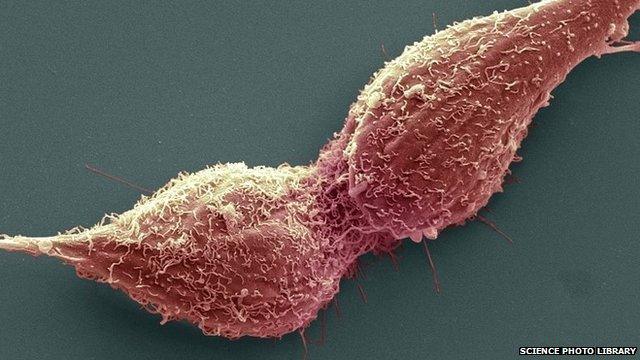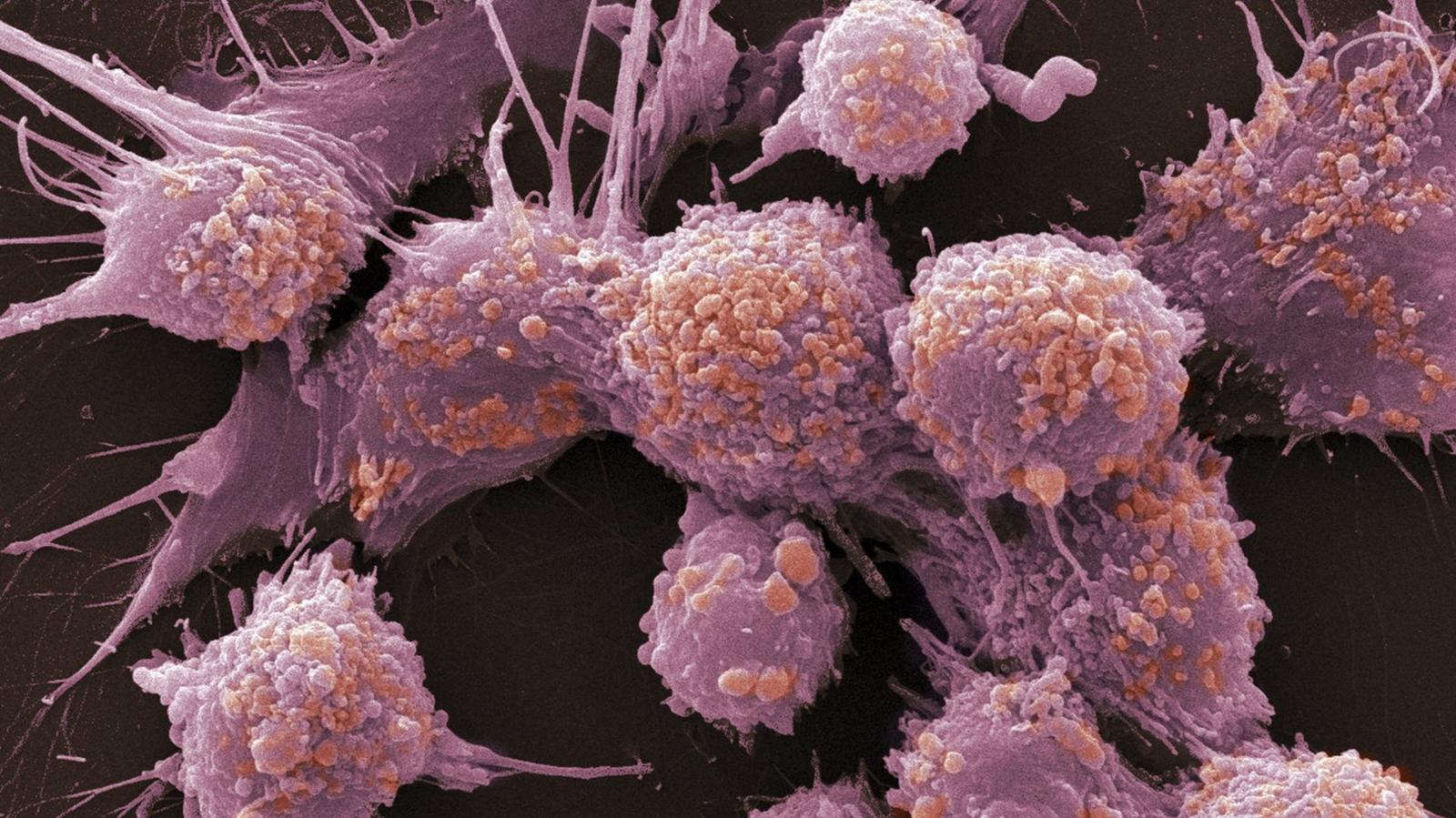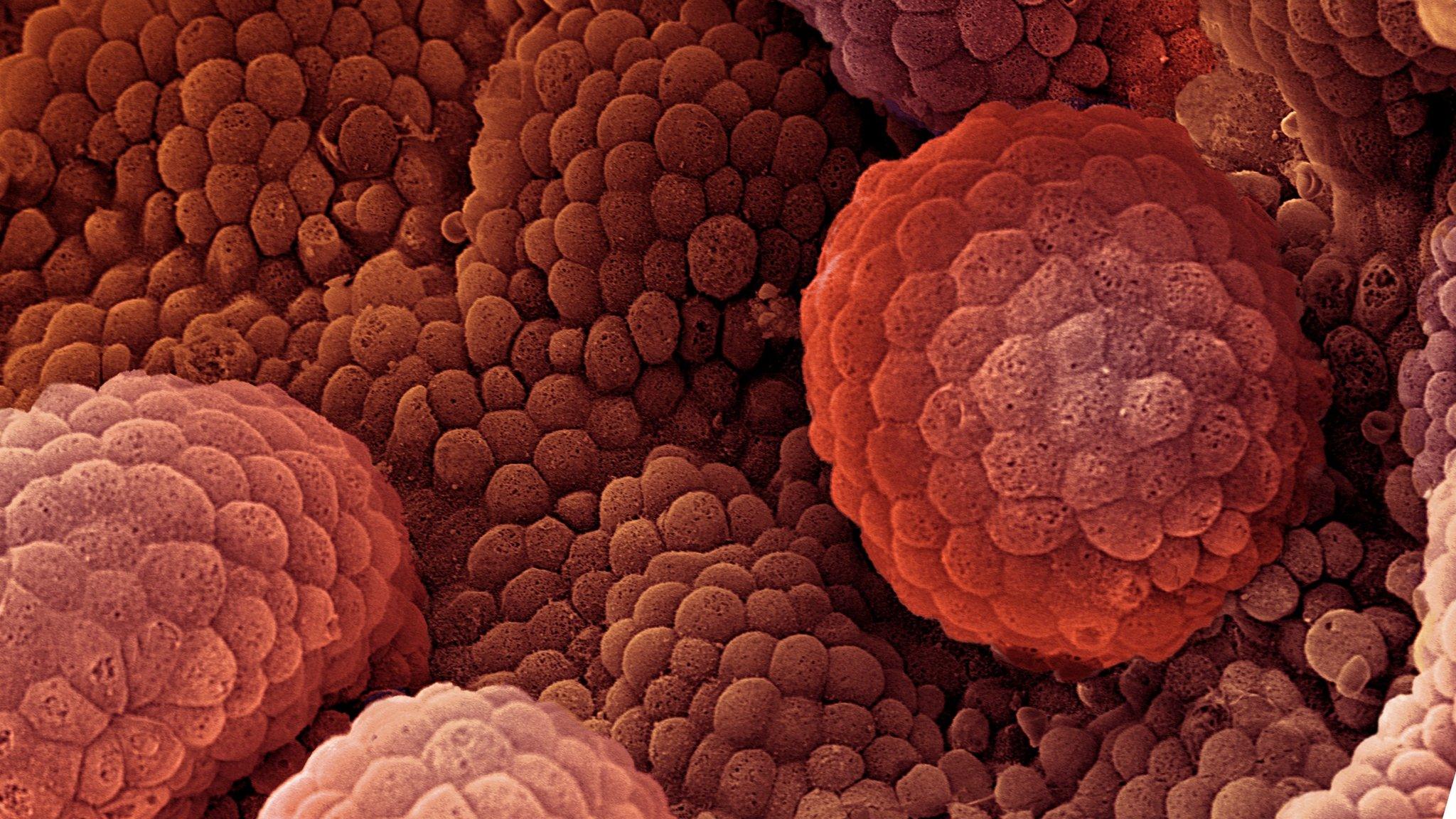Prostate cancer: Five types 'found'
- Published

Scientists have identified five types of prostate cancer, each with a distinct genetic signature.
And by comparing 250 samples removed in surgery with the patients' subsequent progress, they have identified some types that are more likely to recur.
Until now, there has been no reliable way to know which patients have the more aggressive cancers requiring the most urgent and intensive therapy.
But much larger trials are still needed to be certain of these early results.
Spreading aggressively
Prostate cancer is the most common cancer in UK men, with 41,700 cases diagnosed each year.
Prof Malcolm Mason, of Cancer Research UK, which conducted the research with Addenbrooke's Hospital, Cambridge, said some of the types were like a pussycat - growing slowly and causing few problems, while others were like a tiger - growing and spreading aggressively.
And researcher Dr Alastair Lamb said it could be possible to combine this genetic information with existing tests to identify patients most at risk.
He said: "These findings could help doctors decide on the best course of treatment for each individual patient, based on the characteristics of their tumour.
"The next step is to confirm these results in bigger studies and drill down into the molecular 'nuts and bolts' of each specific prostate cancer type."
But he cautioned there were still many questions to be ironed out, including whether the technique could be used routinely in hospitals.
Dr Iain Frame, of Prostate Cancer UK, said: "For men to truly benefit from these findings it is now vital that the research community comes together to confirm the most efficient methods for testing for different types of prostate cancer that can be bought to the clinic. "
- Published14 May 2015

- Published11 April 2014

- Published21 May 2015